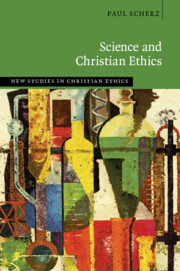Description
Science and Christian Ethics
New Studies in Christian Ethics Series
Author: Scherz Paul
The scientific reproducibility crisis is a crisis of character. Stoic and Christian spiritual exercises build virtues that address these problems.
Language: English
Approximative price 30.28 €
In Print (Delivery period: 14 days).
Add to cart
Science and Christian Ethics
Publication date: 12-2022
Support: Print on demand
Publication date: 12-2022
Support: Print on demand
Approximative price 107.80 €
In Print (Delivery period: 14 days).
Add to cart
Science and Christian Ethics
Publication date: 05-2019
240 p. · 15.6x23.5 cm · Hardback
Publication date: 05-2019
240 p. · 15.6x23.5 cm · Hardback
Description
/li>Contents
/li>Biography
/li>
There is a growing crisis in scientific research characterized by failures to reproduce experimental results, fraud, lack of innovation, and burn-out. In Science and Christian Ethics, Paul Scherz traces these problems to the drive by governments and business to make scientists into competitive entrepreneurs who use their research results to stimulate economic growth. The result is a competitive environment aimed at commodifying the world. In order to confront this problem of character, Scherz examines the alternative Aristotelian and Stoic models of reforming character, found in the works of Alasdair MacIntyre and Michel Foucault. Against many prominent virtue ethicists, he argues that what individual scientists need is a regime of spiritual exercises, such as those found in Stoicism as it was adopted by Christianity, in order to refocus on the good of truth in the face of institutional pressure. His book illuminates pressing issues in research ethics, moral education, and anthropology.
1. The crisis in science; 2. The scientist entrepreneur; 3. Teleology and the craft of science; 4. The practices that shape the entrepreneurial subject; 5. Reshaping the entrepreneurial subject; 6. Acquiring the virtue of truth-speaking in science; 7. Subjectivity, truth, and theological anthropology.
Paul Scherz is Associate Professor of Moral Theology and Ethics at The Catholic University of America, Washington DC. He publishes broadly and teaches in the fields of bioethics and the relationship between religion and science.
© 2024 LAVOISIER S.A.S.




